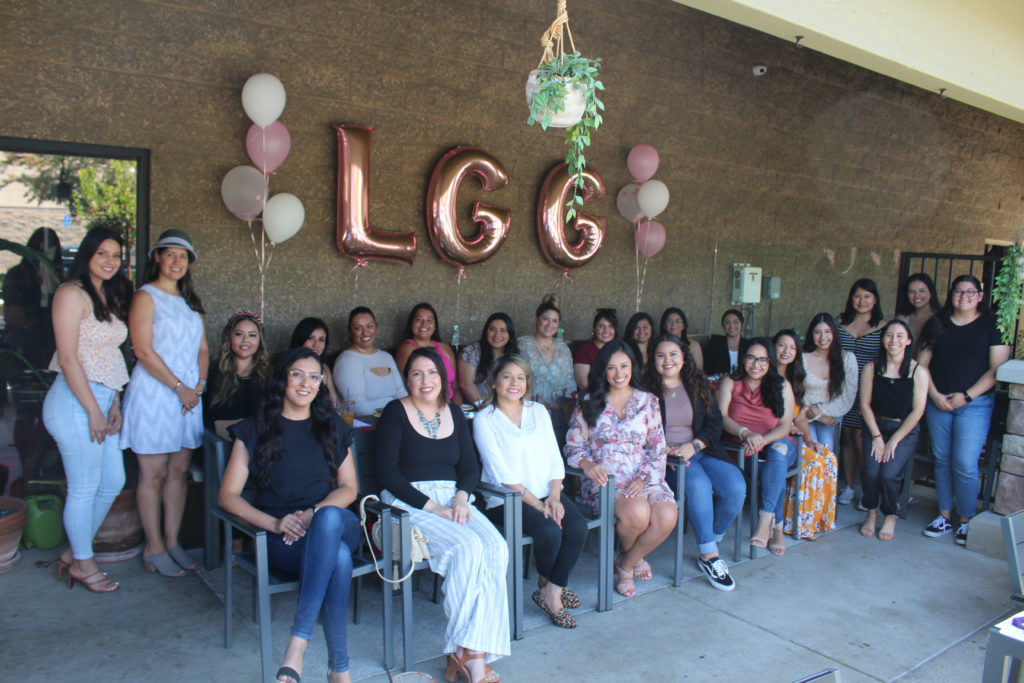Alumnus creates organization to decrease disparities for Latinas in academia
Valerie Gómez is an anthropology alumnus who graduated in 2013. Gómez founded Latina Grad Guide, a social impact organization meant to support Latinas in higher education. (Courtesy of Valerie Gómez)
By Kate Vedder
Jan. 31, 2023 10:45 p.m.
Valerie Gómez has always wanted to forge a path for those who come after her.
Gómez, an anthropology alumnus, founded Latina Grad Guide – a social impact venture to support Latinas in higher education – in 2018, aiming to decrease disparities for Latinas in academia and alleviate financial barriers they may face.
The organization hosts digital campaigns and community building events. It serves 25 states and eight countries, including Belgium and Mexico. LGG has also partnered with TELACU Education Foundation, a nonprofit organization assisting Latinx students, to fund scholarships to help alleviate the financial burdens of graduate school.
Growing up, Gómez heard stories about her family’s life in El Salvador before they immigrated to the United States. They left in the 1980s, she said, when the country was experiencing a civil war. She took those experiences and memories with her as she pursued higher education, added Gómez, who earned her bachelor’s degree from UCLA in 2013.
“As a young child, I felt this obligation to ensure that my family’s sacrifices weren’t in vain,” said Gómez, who is now a education doctoral student at UC San Diego. “To me, as a kid, I conceptualized success as someone who went to college, got a good job and was able to provide support for their family.”
Just over a quarter of Latinas in the U.S. hold a college degree, according to The Education Trust, in comparison to more than half of white women and more than a third of white men. These disparities – including in graduate school – have appeared because of challenges moving up the educational ladder, such as a lack of mentorship, less representation, and microaggressions, Gómez said. She added that her organization is providing resources and a community to support Latinas in higher education.
“Last year, we awarded $10,000 to three Latina women across the United States pursuing different types of graduate programs,” Gómez said.
She added that she dedicated this scholarship to her grandparents because they constantly inspired her and her relatives to earn a degree despite enduring many challenges in El Salvador.

Angie Monreal, a sociology alumnus and scholarship beneficiary, said receiving the scholarship reaffirmed her intellectual ability and feeling of belonging in academia.
“The stars aligned, and I got the scholarship,” said Monreal, who is now a graduate student at the Columbia School of Social Work. “It just really motivated me. … It was a nice validation.”
She said the scholarship enabled her to conduct interviews for her research on immigrants without legal status and how to provide better resources for them.
As a first-generation college student, Monreal said she dealt with impostor syndrome, feeling incapable and lacking confidence in her voice. She added that Gómez normalizes these experiences by sharing her own challenges and how she has overcome them.
Dianna Torres, a higher education graduate student at the University of Michigan, said she valued the validation and encouragement that LGG’s first in-person gathering provided.
“The words that come to mind when I think about the energy of that day, that event, are joy, passion and vulnerability,” Torres added. “Everyone was so happy to meet other Latinas in grad school, and it was such a supportive, uplifting space.”
Torres, who helped organize the gathering, said the event provided a space for Latinas attending higher education institutions to feel empowered and welcome. Even months later, Torres felt like she could contact the people she met during the gathering for guidance and advice, she added.
“At UCSD and throughout the UC system, Latinas only make up about 4% of doctoral students, so you can imagine how lonely that experience might feel,” Gómez said. “Not knowing anyone who looks like you or shares similar experiences – that was at the core of why I launched all of these events.”
LGG has hosted more than 50 events since its launch, including virtual writing cafes and student panels, to provide a space for Latinas around the world to network and collaborate, Gómez said. It has also raised more than $10,000 for another round of scholarships set to launch in February.
“Everybody needs community, whether that be a group of people … (or) a mentor, to help navigate difficult spaces. But also, I think it’s important to have people in your corner rooting for you,” Torres said. “Latina Grad Guide is all that and so much more.”
